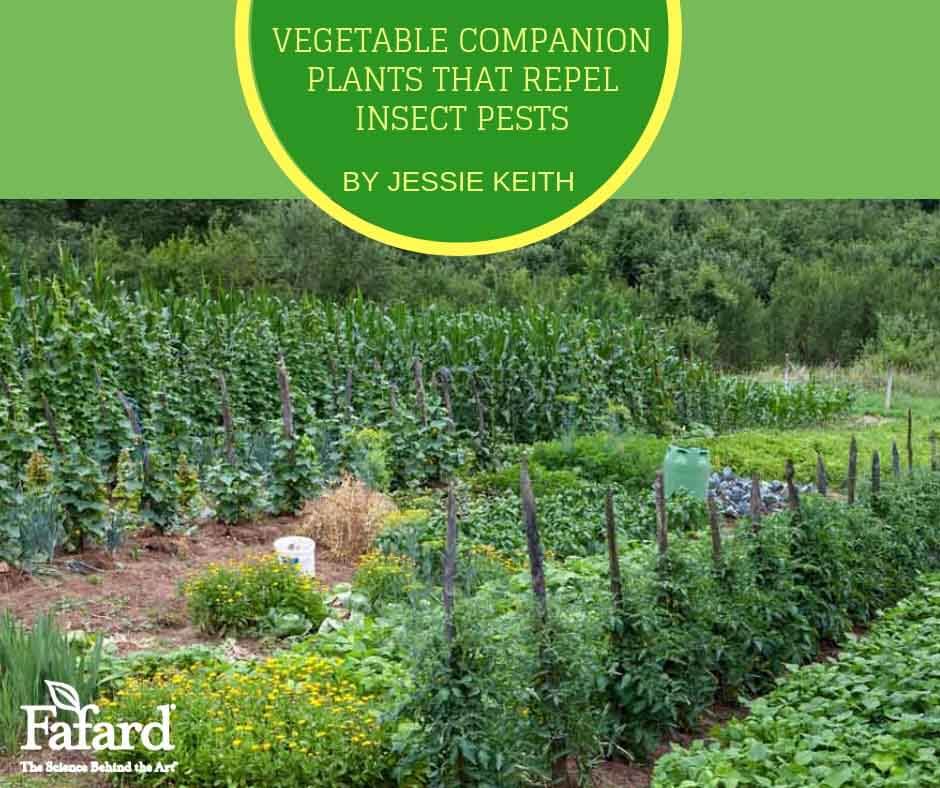
Some attractive and useful companion plants really do help ward off certain insect pests from specific crops. Plant these companions in quantity, and they can serve to reduce the populations of common insect pests of vegetables.
Research has shown that some companion plantings reduce the number of insect pests that attack vegetable crops. Some companion plants are trap crops that attract insect pests, luring them away from your favorite vegetables. Others are insect-repelling companion plants that produce aromatic chemicals that some pests dislike.
Trap crops take up a lot of space and are not practical for most home gardeners, while desirable repellant plants are more viable to grow. These are the plants covered. Companion with some value to gardeners, in addition to protective properties, are a win-win.
Insect-Repelling Companion Plants
Note that repelling plants will never totally protect vegetables from the pests that attack them, but they can reduce the number of pests. Here are a few good examples of protective plants (mostly herbs) and the pests they repel.
Basil
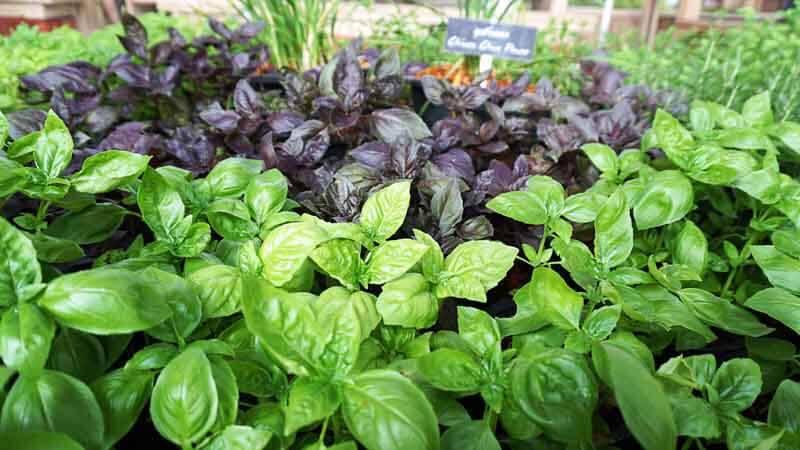
A few key culinary herbs have been shown to offer repellent protection to specific veggies. One of these is everyone’s favorite herb, basil. Research has shown that rows of tall basil (Ocimum basilicum) around tomatoes can reduce the number of tomato hornworms on tomatoes and eggplant. Tomato hornworms are very damaging, defoliating tomatoes in no time. They are also so large, they are very unpleasant to kill.
Basil also wards off thrips from developing flowers and other plant tissues. The little insect pests suck juices from flowers, fruits, and leaves causing ugly mottled spots.
Good basil varieties for the task include the tall, Italian Genovese basil, purple ‘Opal basil, hybrid lemon basil (Ocimum × africanum), and beautiful ‘Pesto Purpetuo‘ basil, which is tall, highly fragrant, non-blooming, and has beautiful variegated leaves.
Catnip
Catnip (Nepeta cataria) can reduce damage by flea beetles, a pest that attacks eggplant, brassicas ( like collards, cabbage, broccoli, and cauliflower), tomatoes, and other common crops. There is also some evidence that it wards off cabbage loopers, which also attack brassicas. A series of predating beetles, including Colorado potato beetles, cucumber beetles, and Japanese beetles, which can attack okra and beans, are also repelled. Squash bugs also avoid these plants.
Another benefit of catnip is that it repels mosquitoes very well.
Chives and Onions
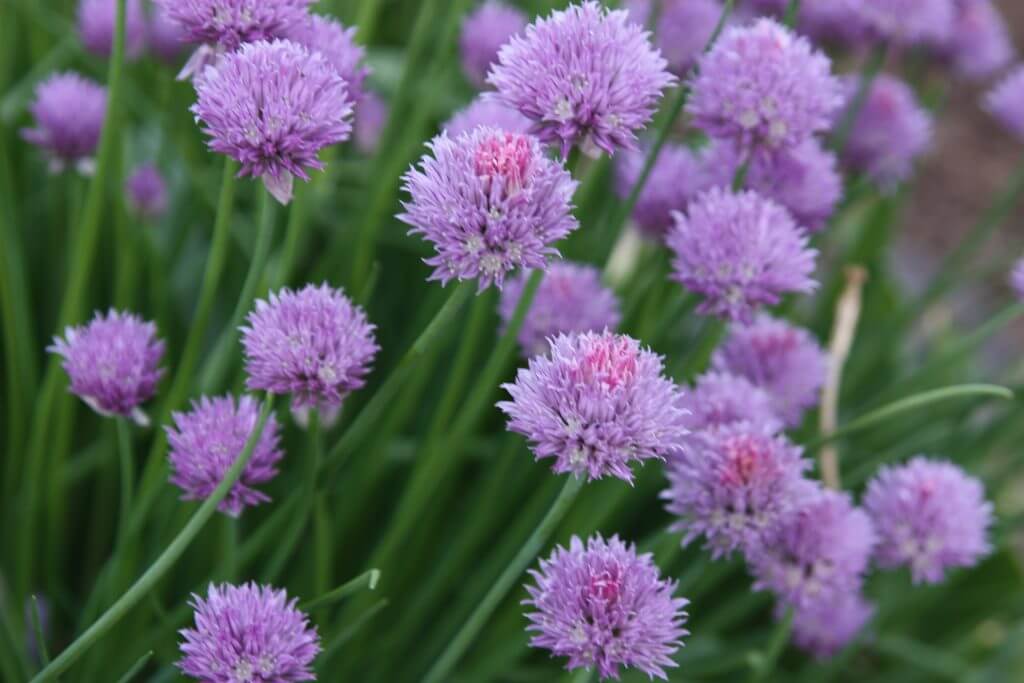
Chives, leeks, and onions (Allium spp.) are welcome additions to any garden and some vegetable pests really dislike them. The pests they deter include damaging moths (like cabbage moths), aphids, and spider mites. All three of these pests attack a wide host of vegetable plants, such as brassicas, beans, and squash, so a border of chives or onion relatives can really help in the garden.
Evergreen Culinary Herbs
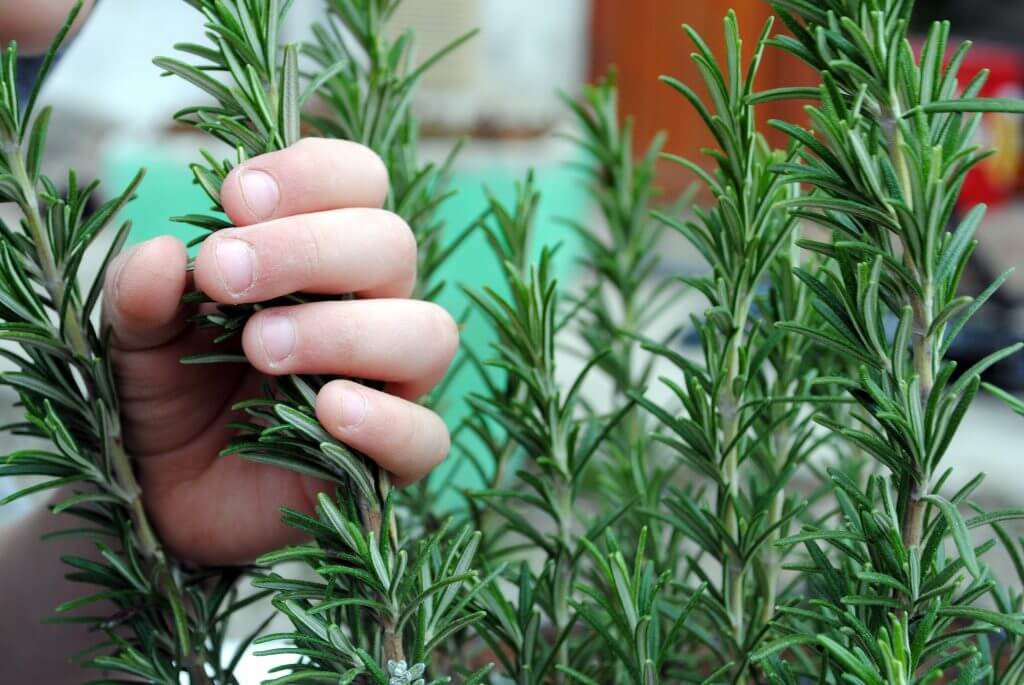
There is a host of favorite culinary evergreen herbs that repel certain pests from brassicas. Many of hese effective herbs in the mint family. This should come as no surprise because they are all strongly aromatic and resinous, which is why they tend to have few to no insect predators. Three of the best include sage (Salvia officinalis), rosemary (Rosmarinus officinalis), and thyme (Thymus vulgaris).
Sage has been shown to protect brassicas from cabbage moths as well as carrots, parsley, and parsnips from carrot flies. Rosemary also protects against carrot flies in addition to snails and slugs. Finally, whiteflies, which damage the foliage and overall health of many crops, disfavor thyme.
Daisy-Family Herbs
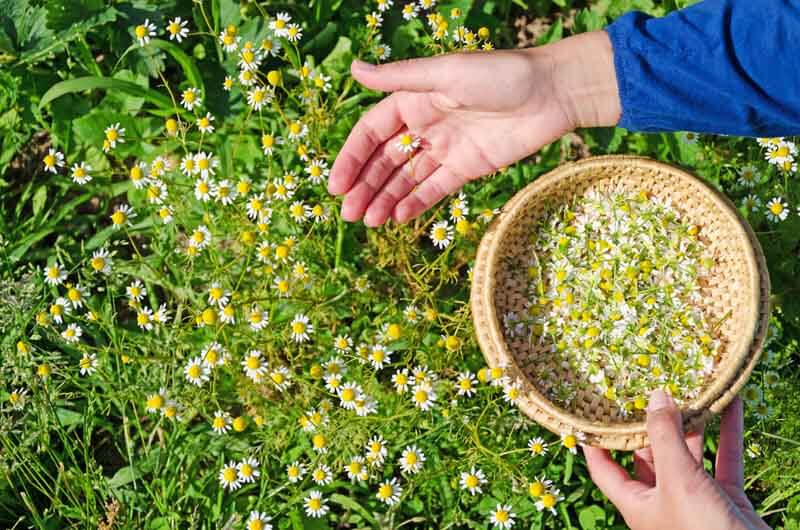
Strongly aromatic herbs in the daisy family can really pack a punch against pests. Some are very large, so they need space to grow, but they are reliable companions to many vegetables.
From spring to midsummer, chamomile (Chamaemelum nobile) shines in the garden providing some protection to brassicas from cabbage loopers. The dried flowers of chamomile can also be used to make a flavorful, soothing tea.
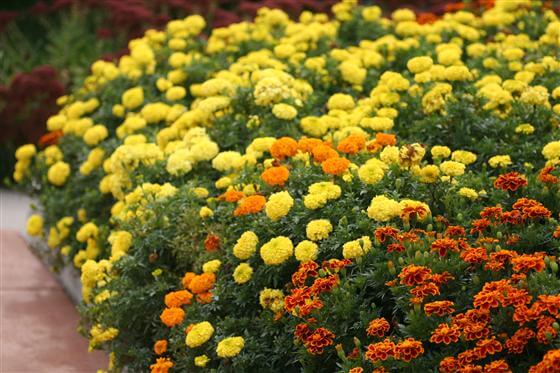
Marigolds of all kinds help ward off a serious underground pest of tomatoes, tomato root-knot nematodes. These attack the roots of tomatoes, stunting the plants and reducing their productivity. Planting tomatoes and marigolds in rotation from year to year can help keep these pests away. (Click here to learn more about marigolds and root-knot nematodes.)
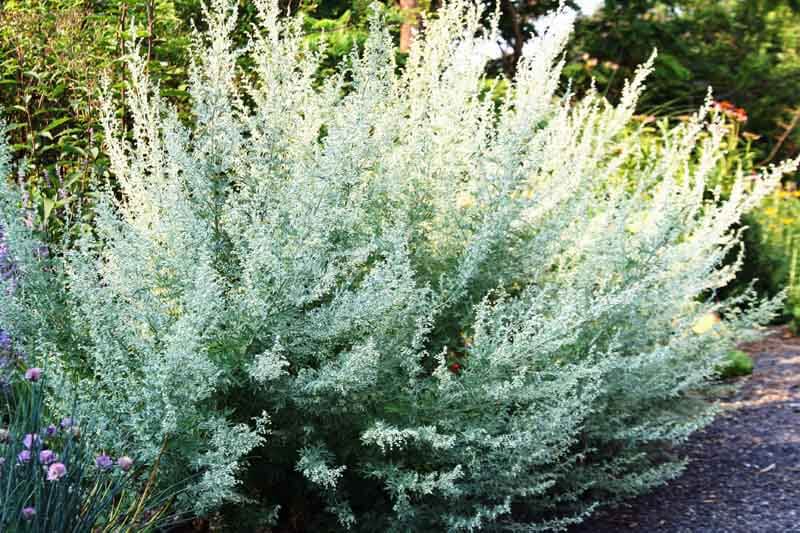
Even more effective members of this family include the non-culinary, herbs wormwood (Artemisia absinthium), the herb used to make absynthe, southernwood (Artemisia abrotanum), and tansy (Tanacetum vulgare). All are strongly fragrant and have been shown to reduce damage by flea beetles, a pest that attacks eggplant, brassicas, tomatoes, and other common crops. Southernwood and wormwood also protect against cabbage loopers and cabbage butterflies. And, Japanese beetles and Colorado potato beetles don’t like tansy.
One downside to these three non-culinary repellent plants in the daisy family is that they tend to spread and become weedy. So, be sure to clip back their flowers to keep them from setting seed.
In general, herbs grow best in fertile to semi-fertile soil enriched with compost. Companion plantings are most effective if you plant them in rows or rings surrounding the vegetables that you want to protect. And, if you plant favorite culinary herbs, you can harvest and enjoy these as well.

